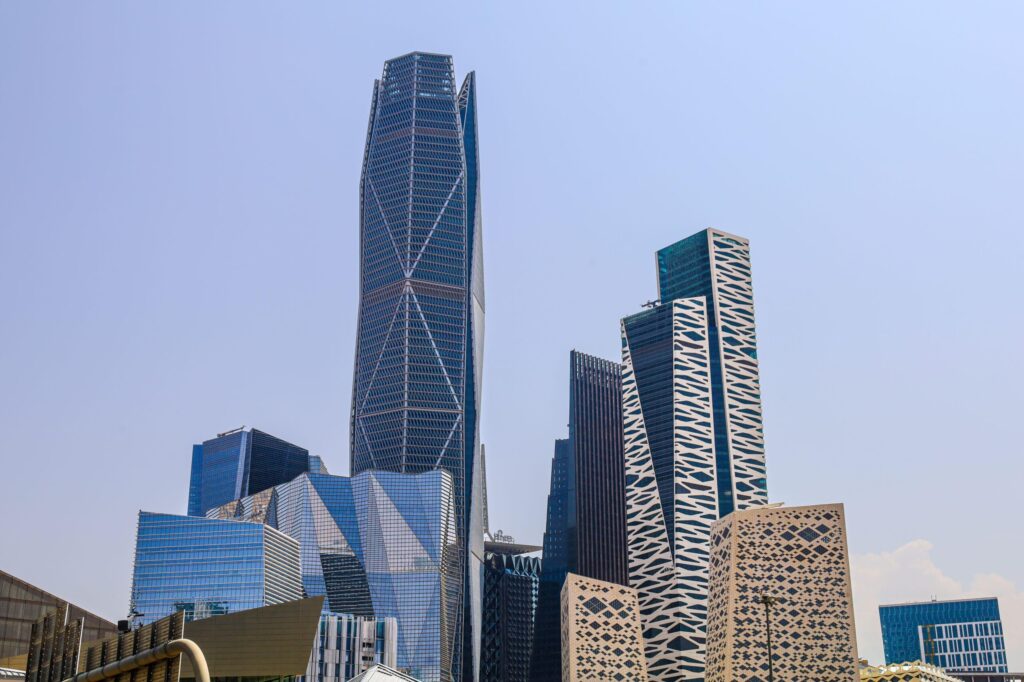Since the pandemic, IPO activity across GCC capital markets has surged – offering a sharp contrast to the stop-start pace on New York’s Nasdaq and the near standstill on London’s LSE.
Nearly 300 IPOs have raised around $50 billion across the Gulf since 2021.
Below I outline six key macro themes shaping this post-Covid IPO boom in the GCC.
First, contrary to expectations, the number, size and aftermarket performance of IPOs in the GCC have shown little correlation with oil prices.
Since 2021 Brent crude has swung wildly, yet IPO momentum has remained resilient, even in hydrocarbons-heavy markets like Saudi Arabia.
Second, the sheer variety of sectors that contributed to regional IPO deals demonstrates that non-oil growth, industry deregulation, private sector entrepreneurship and e-commerce are powerful macro themes in the Gulf.
The two largest IPOs in the GCC last year were the $2 billion food delivery app Talabat‘s IPO, listed in Dubai’s DFM, and the $1.8 billion Lulu hypermarket, a 50-year-old family-owned grocery chain listed on Abu Dhabi’s ADX.
Last year saw 48 IPOs from sectors as varied as grocery chains, software and IT services, e-commerce, education, healthcare, financial services, remittance solutions, leisure, transportation and real estate.
Third, Saudi Arabian deal flow both dominated the IPO pipeline and dramatically outperformed its GCC peers in aftermarket trading.
For instance, 38 out of the 48 deals in the GCC that raised $12.06 billion in 2024 originated from the kingdom, and the average aftermarket performance in the week following the IPO was a spectacular 45 percent.
The kingdom’s first three IPOs on the main market this year all went “limit up”, surging on their first day of trading by the maximum 30 percent allowed. It is no mistake that the first aviation IPO in the region in almost two decades – Flynas is seeking to raise $1.1 billion – is taking place in the kingdom.
This is a testament to both the vast liquidity available in the Saudi new issue market and the magnetic power of the kingdom’s junior exchange, Nomu, which saw 27 companies listed in 2024 alone.
New listings on Nomu are typically domestic Saudi firms operating in high-growth sectors tied to the kingdom’s digital transformation – highlighting a clear link between rising tech literacy among its youthful population and a growing appetite for high-risk, high-reward IPOs.
Fourth, the GCC IPO constellation is dominated by Saudi Arabia and the UAE, with Oman a distant third. Saudi Arabia’s 38 IPOs in 2024 dwarfed seven from the UAE, two from Oman and a solitary flotation in Kuwait.
This spectacular asymmetry in the national origin of IPOs reflects the vast differences in the capital markets milieu, investor ecosystems and liquidity preferences among the six GCC states.
Fifth, the recent IPO boom has attracted global investor interest in the Gulf’s emerging capital markets, as sovereign wealth funds from the region have become a significant force in Wall Street and Silicon Valley deal-making.
This trend will both broaden and deepen the GCC capital markets, evidencing that they are no longer an illiquid sideshow in the emerging markets universe.
Historically the GCC IPO landscape was dominated by state-led privatisations and secondary offerings, with governments selling minority stakes in national champions.
The most iconic example remains the 2019 Saudi Aramco listing – still the largest IPO in history – which raised $25.6 billion by selling just 1.5 percent of the company on Riyadh’s Tadawul exchange. But the market has since evolved, moving beyond oil giants and into broader, more diversified territory.
Saudi Aramco subsequently raised $12 billion in a secondary offering last year. These mega deals played a crucial role in the development of the kingdom’s capital markets infrastructure and set the stage for the current bullish IPO environment.
The UAE’s role as the most diversified, cosmopolitan and networked economy in the Arab world can be gauged by the fact that it contributed to the two largest IPOs of 2024 – both private sector businesses with no connection to oil and gas or the government.
The 2025 IPO of Bahrain-based Investcorp Capital marked a milestone for the region – positioning Abu Dhabi where it listed not just as an oil-rich emirate, but as a rising power in global finance.
By listing a world-class alternative investment manager on the Abu Dhabi Securities Exchange, the UAE has shown it is no longer just deploying capital abroad – it’s building the infrastructure to manage it at home.
As a growing nexus for hedge funds and private capital, Abu Dhabi is fast becoming a noodle point in the global alternatives ecosystem.
Mixed IPO outlook
I predict the Saudi Arabian sovereign wealth fund PIF will midwife the next generation of privatisation IPOs in the kingdom, as it did with Saudi Aramco in 2019.
But while the IPO market outperformance and the sheer scale of domestic liquidity flows make mega privatisation listings viable, the same cannot be said for smaller GCC states like Oman and Bahrain.
Facing tighter fiscal constraints, their private investor base tends to favour quasi-debt, high-yield instruments issued by state-owned blue-chips over equity exposure.
The sale of a 25 percent stake in OQ Gas Networks by Oman’s state energy company suggests that it is problematic to engineer an IPO or even a state-owned energy colossus when oil prices are mired in a bearish downtrend.
While the IPO marked a milestone for the Muscat bourse, it also revealed the limitations of investor appetite when crude prices are under pressure.
Unlike Saudi Arabia’s liquidity-fuelled listings, Oman’s experience shows that timing – and broader market sentiment – can still make or break even the most strategic flotations.
Matein Khalid is an investor in global financial markets and board adviser to leading family offices in the UAE and Saudi Arabia



